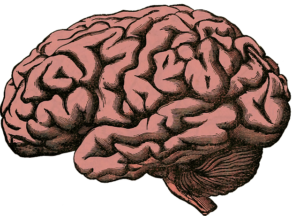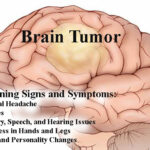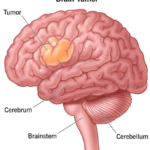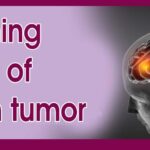How can you keep your brain healthy? Healthy brain requires proper diet, exercise, physical activity and sleep.
Brain is the crown jewel of a human body responsible for internal demands and external responses, special interactions, environmental adaptations and spiritual connectivity. Human brain has evolved over millions of years as the most sophisticated, intricately engineered machine with the capability of performing multiple task parallelly as well as sequentially.
Brain has two big hemispheres – right and left cerebral, two small hemispheres called right and left cerebellum (big and small brain). All the areas of the brain are interconnected through the white matter located deep inside the brain contributing to major substance. This in turn directly communicates to body through the spinal cord eventually transmitting the electrical signals to each and every specific parts of the body. At the same time all the sensory organs like eye, ear, tongue, nose and the skin will be transmitting information including the feedback to the brain about the light, sound, smell and other sensations continuously. Brain in turn processes the entire information, takes cues from the past experience and memory to interpret and act.


Brain has distinct area that serves distinct functions. However, both right and left brain and different areas of brain work in tandem and perfect co-ordination to make every action perfect. Due to its high metabolic activity, the brain demands highest amount of blood supply for skull from the heart.
1. Nervous System is the first to develop in the embryo. By the time the pregnancy is detected the neural tube is already formed so the brain development is quite complex therefore any alterations can lead to serious birth defects both in the brain as well as in the spinal cord therefore the expectant mothers should take folic acid much before they plan for the pregnancy.
2. Brain continues to work both at day and at night. The electrical activity can be recorded by electroencephalogram (EEG). The electrical activity can vary depending upon the activity of the brain. Any abnormal electrical discharges can create a spark with a high voltage leading to convulsions. Epilepsy or fits is nothing but an abnormal electrical discharge from the brain.
3. Brain requires highest amount of blood supply to meet the demand. Blood vessels of the brain are arranged in a circular fashion like one of the best water circulatory system. Inspite of this arrangement if there is a reduction in blood supply this can lead to brain attack (stroke). Similarly, a rupture or damage to the blood vessel can cause brain haemorrhage.
4. Brain tumor is the growth that happens from any structure inside the brain. Any such additional component can occupy the space meant for the brain and cause suppression as well as increased pressure inside the head. This can lead to headache associated with vomiting. All headaches do not mean a tumor. Headache can be caused by many other conditions.
5. Brain utilizes only glucose for its nutrition. Reduction in glucose can make the brain hungry leading to irritability, lack of concentration, convulsions and unresponsiveness if not corrected.
6. Sleep is an important function of the brain. Every one requires 6-7 hours of sleep to maintain proper health. During the sleep brain eliminates all the toxins and restores all the chemical substances that are needed for the normal function of the brain during the day. Sleep are of two types – REM (Rapid Eye Movement) sleep and NREM (Non-rapid Eye Movement) sleep. Every cycle of NREM sleep will be followed by a short period of REM sleep. The maximum amount of REM sleep will be in the early hours of morning and during this sleep one experiences vivid dream.
7. Throughout life we learn through the sensory experience are stored in the brain in different locations and finally as a permanent memory in the hippocampus. In day-to-day life the memory is used from different sources to respond to the events of life. The memory can be immediate, remote, long-term, rote memory and genetic memory. The disturbance of this memory system can lead to various kinds of memory loss.
8. Brain grows throughout the fetal life and reaches its peak in the first two years of life wherein the number of neurons will get interconnected and the white matter will get a coating called myelination. These coating helps in maintaining the speed of conduction and prevents cross talking within the brain area. As the myelination progresses child attains the physical as well as mental milestone.
9. On the contrary when a person ages the number of brain cells gradually disintegrate making the brain smaller (atrophy). This natural process can start quite early in life at a higher magnitude called cerebral degeneration wherein the programmed cell death will rapidly disturb the brain connectivity leading to all degenerative conditions like dementia and alzheimer’s.
10. Healthy brain requires proper diet, exercise, physical activity and sleep. Brain is highly sensitive and prone to damage and hence it is mandatory to avoid all the toxins that can impair the brain function like smoking, excessive alcohol, sedentary life, substance abuse or physical abuse. Brain and the gut are interconnected and the diet can influence the brain growth, brain activity as well as the personality. Nutrition plays a significant role right from pregnancy time all the way upto the end of life. Maternal nutrition, later on breast milk during infancy and appropriate nutrition will keep the brain healthy.
The capacity of brain is enormous, one can use only 7-10 % effectively in the entire lifetime. Brain is like a timer, the more the use the more it shines. Continuous usage will continue to keep the nervous system active and also sustains the connectivity within, keeping the efficiency despite ageing. One must nourish the abilities of the brain and put effort to avoid damage by all means.


Dr.NK Venkataramana
Founder Chairman & Chief Neurosurgeon,
Brains Neuro Spine Hospital, 8, Ideal Homes HBCS Layout, RR Nagar, Bengaluru- 560098.
Ph:+91 9148080000











